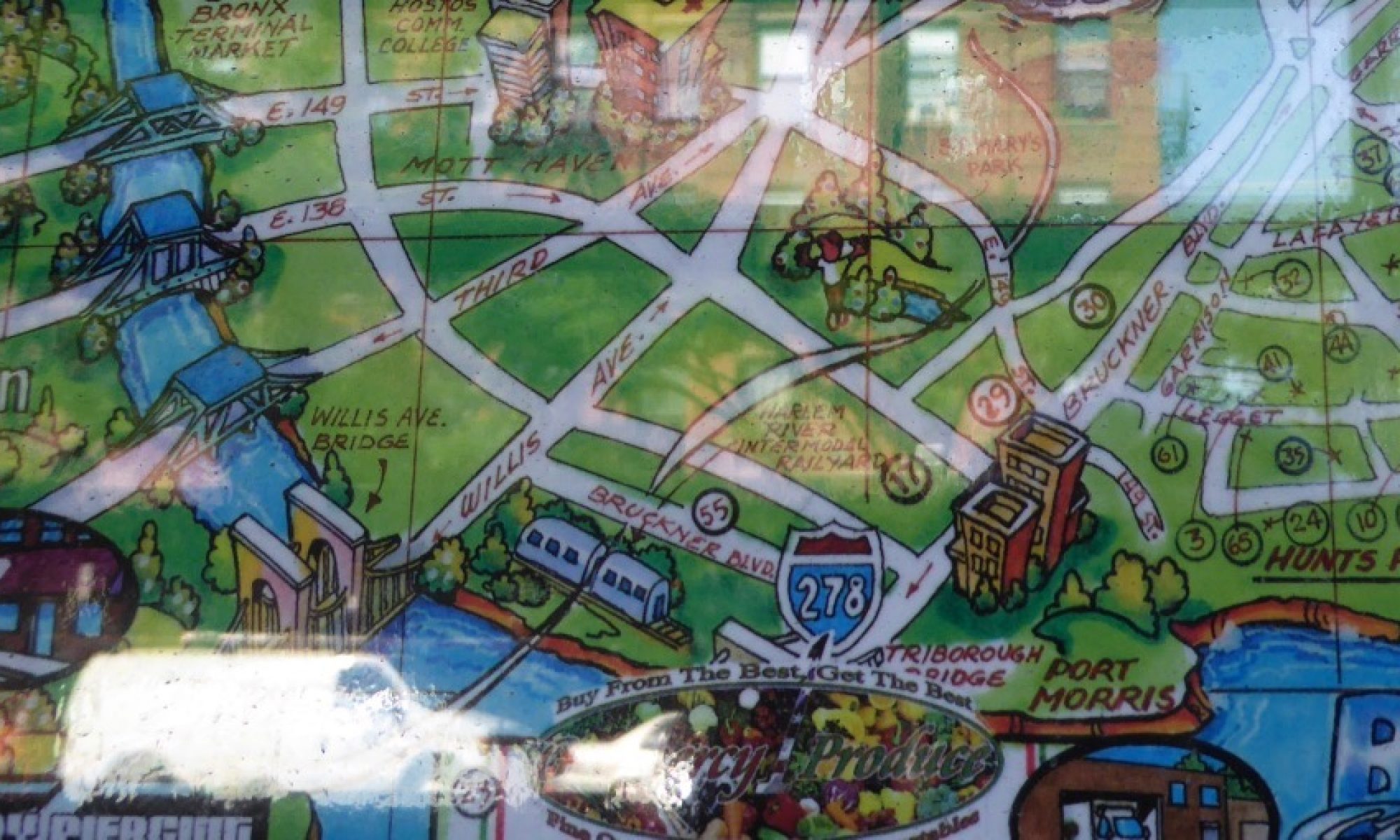(Photos by Romina Hendlin and Paula Abreu)
With support from the Bronx Council on the Arts and Local Voices Network, in 2020-2021 we began a project to document and amplify the histories of activism in Mott Haven, from immigrant justice to waterfront access and mass incarceration. In this time of upheaval, crisis, and change, we believe it is important to know our histories, so we can learn from them as we create the futures we want for our neighborhood.
To get started, we each highlighted one of the many activist histories here – interviewing participants, editing their stories, and contributing to a story map, public history banners, and a self-guided walking tour. You can explore the full oral histories here.

Romina Hendlin chose to focus on the work of the Saavedra family, who own La Morada, a restaurant that transformed into a mutual aid kitchen during the pandemic and is an anchor for Mott Haven. They have been prominent activists for years, especially around immigrant rights. Romina interviewed them about their family history, and learned how the children have inspired the parents as well as how the parents have supported the children.
Carol Zakaluk wanted to bring together people who have organized for waterfront access over the decades that she herself has been involved in this issue. People and organizations have come and gone, each building on the work of those that came before them. She brought together people from Cherry Tree Association, Friends of Brook Park, South Bronx Unite, and the New York Restoration Project. They talk about why waterfront access and environmental justice matter to them, and the frustrating obstacles to building a long-planned (and funded) waterfront park.
Ramona Ferreyra and Olivia Glover chose to research the history of mass incarceration in Mott Haven. Residents are divided over the plan to build a borough-based jail in Mott Haven. This conversation aimed to explore the history of borough based jails in the South Bronx – Ramona and Olivia found that there was a Bronx County Jail located here before. Folks from Bronx Connect, Freedom Agenda, Children’s Haven, and Mott Haven Reformed Church participated. Ramona and Olivia hoped to have a conversation that would bring together those who support the new jail and those who oppose it, but due to the still-contentious nature of this issue folks who oppose the jail did not join this conversation. There is more work to be done to tell the stories and histories of those who oppose the jail, and it is work we are eager to do.
Our launch event was at Brook Park on June 12, 2021.
Who are the Mott Haven residents working on this project?
We invited residents who had been involved in the first phase of the project as soundwalk guides to participate.
Ramona Ferreyra, activist, entrepreneur, and Mott Haven resident
Olivia Glover, lifelong Mott Haven resident, City College student
Romina Hendlin, artist and Mott Haven resident
Amy Starecheski, oral historian and long time Mott Haven resident
Carol Zakaluk, lifelong Mott Haven resident and community activist
What is the process like for people who share their stories?
We are partnering with Local Voices Network to record and transcribe the conversations on which our work will be based. Team members will record group and/or individual interviews, using Zoom (or another platform if participants prefer) or in person, in English and/or Spanish. Participants will be able to review the transcripts of their conversations and make edits before they are made public, and will be asked for their feedback on the stories, banners, and audio pieces we create from the interviews.
Oral history interviews are different from the interviews we see most often on TV and hear on the radio in several important ways:
- The person being interviewed has more control over the interview – how it is structured and what it is about. Oral history interviewers usually ask open-ended questions, and give the person they’re interviewing a lot of time and space to talk about whatever they want. We know that both the interviewer and the person being interviewed will have things they want to talk about, and believe that both people’s agendas are important.
- The person being interviewed has more control over the way the interview is used. In this project, that means that the release form we use will allow you to keep the copyright to your interview and also allow others to access and use it. You will also have the option of editing your interview or closing parts of your interview to the public for a period of time.
- Oral histories are archived – this means that the recordings are stored in a public institution where they can be preserved and made available to anyone who wants to use them. The whole interviews are put into the archive – just as they were recorded, unless the person being interviewed requests that changes be made to them. The release you sign will allow an archive to keep the interviews and make them available to the public. We will let you know when the interviews are about to be available.




























